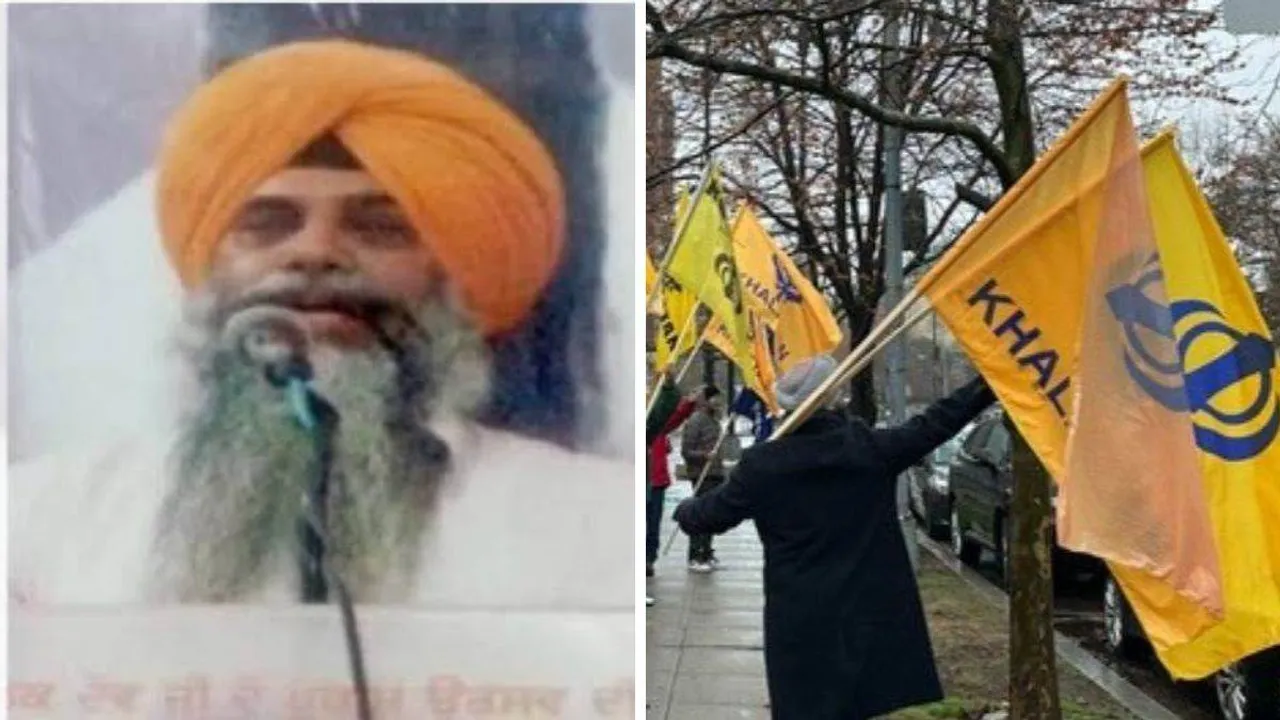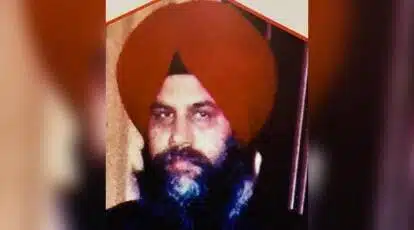Panjwar, who was 63 years old, was labelled as a terrorist by India under the Unlawful Activities (Prevention) Act in July 2020.

Paramjit Singh Panjwar, the leader of the Khalistan Commando Force and Malik Sardar Singh, a wanted terrorist in India, was shot dead by unknown assailants on Saturday while he went out for a morning stroll close to his home in Pakistan’s Lahore, according to authorities.
When two gunmen opened fire on Panjwar and his guard in a park at Sun Flower Housing Society in Jauhar Town of Lahore, they fled on a motorbike.
Terrorist Leader Assassinated
According to a high-ranking official from the Punjab Police in Pakistan, Panjwar Singh was shot in the head by gunmen and was declared dead upon arrival at the hospital. The officer also mentioned that Panjwar’s guard was injured and later passed away on the same day.
Pakistani intelligence agencies, such as the Inter-Service Intelligence (ISI), Military Intelligence (MI), and Counter-Terrorism Department, were involved in the investigation.
After the killing, the Counter Terrorism Department (CTD) sealed off the area and initiated an investigation, prohibiting media personnel from entering the crime scene. This incident represents another case where notorious terrorists have been targeted outside India.
In February of this year, Bashir Ahmad Peer, a self-proclaimed leader of the terrorist group Hizbul Mujahideen, was killed by unknown attackers in Rawalpindi, Pakistan.
Targeted Terror: String of Assassinations Shake Pakistan
Syed Khalid Raza, a former commander of the terrorist group Al Badr based in Pakistan, was also killed in a similar manner outside his Karachi home during the same month. Aijaz Ahmad Ahanger, also known as Abu Usman Al-Kashmiri, an extremist from Kashmir who had joined the Islamic State (IS), was reportedly killed in February in the Afghan province of Kunar.
As the investigation proceeded, a witness recounted to the CTD officials what they had observed. According to the eyewitness, Panjwar and his guard were present in the park at approximately 6 am when a gunman approached them and began shooting. The witness stated that the assailant swiftly ran towards the society gate and escaped with an accomplice who had been waiting for him outside.

According to a source in CTD, the perpetrators conducted a week-long reconnaissance after recording comments from several residents of the housing community. A couple of teams from the intelligence services have been formed to apprehend the perpetrators and the network that supported them, he said, adding that “we have an important clue about the killers.”
Sources within the Lahore police have disclosed that the investigation has been entrusted to the ISI, and they have requested that the police not file an FIR until the ISI grants approval. As a result, the agencies have secured the crime scene while the Lahore police have been directed to stand down.
Radical Sikh Leader Mourns Panjwar Singh’s Assassination
The assassination of Panjwar Singh has been deemed shocking by Kanwar Pal Singh, the leader of the radical Sikh group Dal Khalsa, in India. Kanwar Pal Singh revealed that he had known Panjwar for many years, and the two had collaborated under the Panthic Committee during the height of militancy in the early 1990s. Panjwar was highly regarded as a dedicated fighter for the Sikh cause, and within the militant ranks, he was known as “Bhau,” a term that refers to a respected elder brother in Tarn Taran, the town where he was born in 1960.
In 1986, Panjwar joined the KCF (Khalistan Commando Force), led by Sukhdev Singh, also known as Sukha Sipahi, a police constable in Punjab, India. However, in 1989, Sipahi was killed in a police encounter in Hoshiarpur. Following his death, Kanwarjit Singh of Sultanwind in Amritsar became the KCF’s leader, with Panjwar as his second-in-command.
After Kanwarjit Singh’s death, Panjwar assumed control of the KCF. In 1995-96, he fled to Pakistan and had been living in Lahore, although he had not been actively involved in the group’s activities for several years. Instead, he focused on organizing weapons training for young people in Pakistan, supplying arms and ammunition, and facilitating infiltration into India to target VIPs and economic installations.













